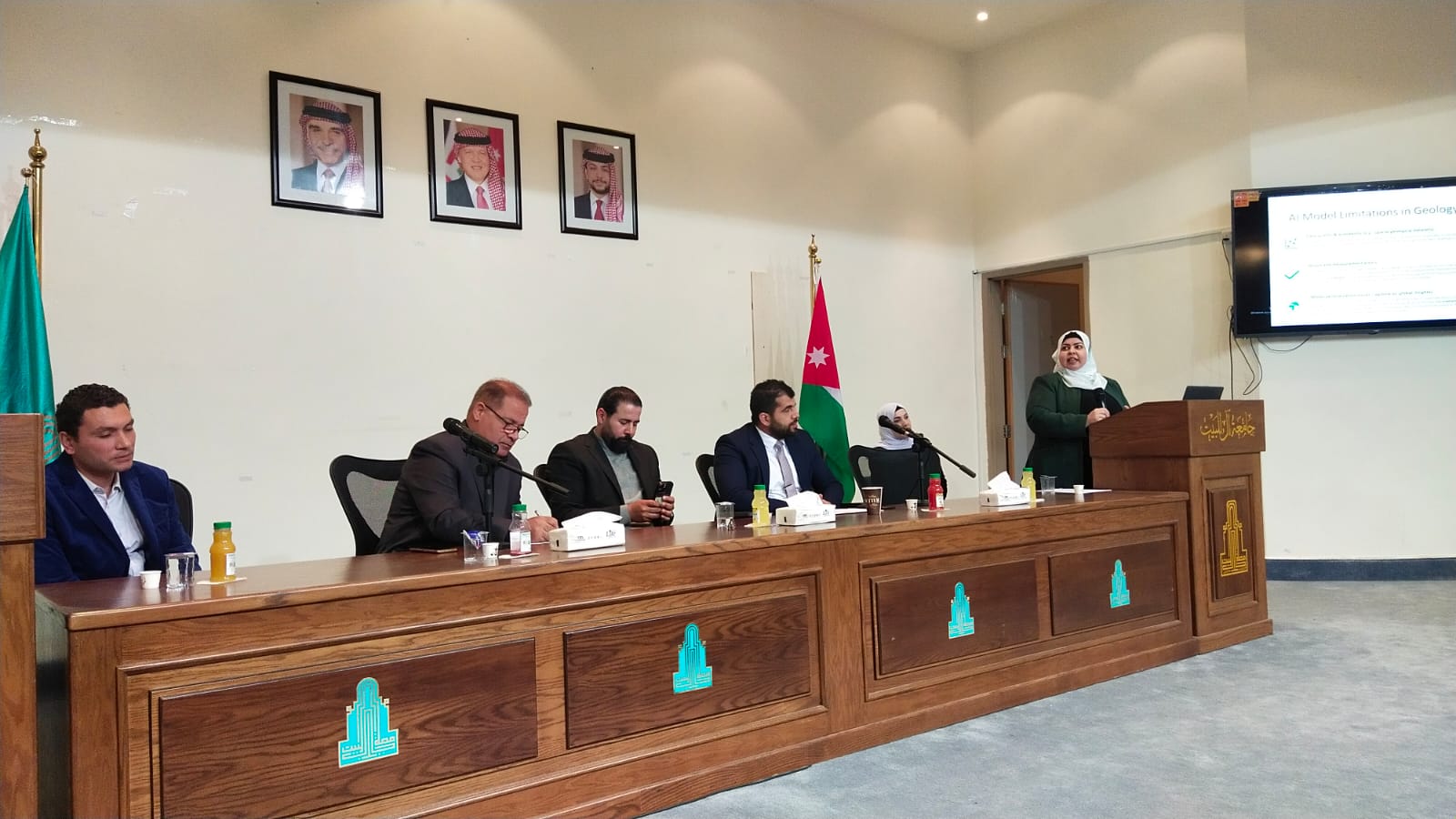Scientific Symposium: The Use of Artificial Intelligence in Earth and Environmental Sciences

On behalf of the University President, Professor Osama Nusair, the Vice President for Scientific Faculties, Professor Ahmed Al-Alawneh, inaugurated the scientific symposium organized by the Faculty of Earth Sciences under the title: "The Use of Artificial Intelligence in Earth and Environmental Sciences," with the participation of a number of researchers from the university and from the Arab Republic of Egypt, in the Al-Hassan bin Talal Amphitheater at the university. The inauguration was attended by the Vice President for Administrative Affairs, Dr. Omar Al-Atin, and the Dean of Student Affairs, Professor Saif Al-Shubiel.
In a speech during the opening, the University President's representative, Dr. Al-Alawneh, indicated that such seminars come within the framework of the university's continuous endeavor to enhance scientific research and consolidate the culture of innovation in the fields of knowledge. He stressed that the university, believing in the importance of keeping pace with the digital and scientific revolution, is keen to encourage research frameworks to invest in artificial intelligence technologies and their applications, which are a fundamental pillar for achieving sustainable development and facing contemporary environmental challenges.
For his part, the Dean of the College, Dr. Habes Al-Mashaqa, explained during the opening that this scientific symposium comes within the framework of the university's continuous commitment to keeping pace with the latest technological and knowledge developments, indicating that the use of artificial intelligence tools today constitutes a major driver for scientific innovation in dealing with data and making smart decisions in the fields of earth and environmental sciences. He stressed the importance of investing these tools to serve scientific research, education and society, as artificial intelligence provides advanced capabilities for analyzing environmental and geographical data, understanding natural phenomena, and predicting disasters.
During the symposium, a set of scientific papers were presented, where the sessions began with a paper entitled: "Applications of Artificial Intelligence in Geology and Mineral Exploration," presented by Dr. Muhammad Al-Sharqawi from the Arab Republic of Egypt. Dr. Ali Al-Qudah from the Faculty of Earth and Environmental Sciences also spoke about the role of artificial intelligence in building early warning systems for crises. In turn, Professor Hani Al-Amoush reviewed the uses of artificial intelligence in studies of earthquake prediction, landslides, and volcano monitoring. Dr. Najah Al-Shanabla from the Faculty of Information Technology also addressed the determinants of the artificial intelligence model for research ethics and future developments in geological studies.
The symposium concluded with a speech by Dr. Ahmed Shdeifat, who presented a summary of the symposium's work and scientific lectures, pointing to future cooperation opportunities in the fields of earth sciences and information technology.